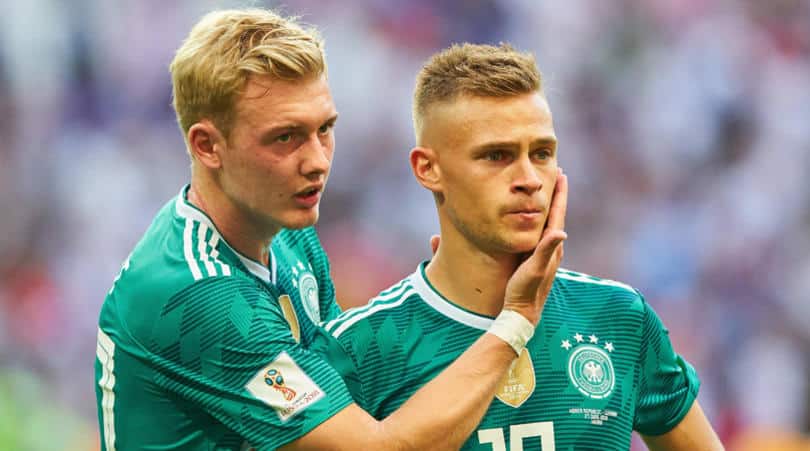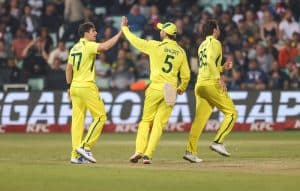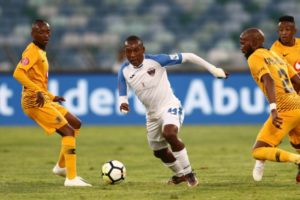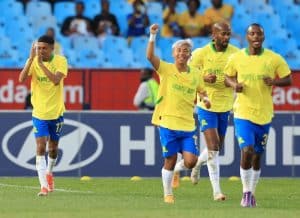From a decorated Spanish defender to a Polish playmaker, via several Germans, these players arrived at the World Cup with high expectations – and failed to deliver.
GK: David de Gea (Spain)
Premier League fans have grown so accustomed to De Gea’s consistent brilliance that it came as a shock when his error allowed Cristiano Ronaldo to score the second of his three goals in Spain’s thrilling 3-3 draw with Portugal, as a shot directly at him squirmed through his hands.
That was, in fairness, the only major mistake the goalkeeper made, with De Gea playing a spectator for long periods of La Roja’s matches against Iran, Morocco and Russia. The Manchester United man wasn’t at his best, however, and he was also criticised by sections of the Spanish press for failing to save any of the four penalties he faced in the last-16 shoot-out with the hosts.
READ: How refugee Modric rose to rule Russia
RB: Joshua Kimmich (Germany)
A harsh inclusion perhaps, but at the very least Kimmich failed to further enhance his lofty reputation at the World Cup. The right-back was continually caught too high up the pitch in the 1-0 loss to Mexico which set the tone for Germany’s tournament, with Hirving Lozano repeatedly taking advantage of the space he left behind.
Kimmich may have improved against Sweden and South Korea, but his contributions in both attack and defence were below the level we’re used to.
CB: Gerard Pique (Spain)
The headlines after Portugal and Spain’s 3-3 draw rightly belonged to Ronaldo after his hat-trick and superb all-round display, but another conclusion drawn from that match was that Pique looked defensively suspect.
The Barcelona defender steadied himself in the 1-0 victory over Iran, but was then fortunate to avoid a red card after a mindless lunging tackle against Morocco. In the round of 16 loss to Russia, meanwhile, it was Pique who gave away the penalty with an inexplicable handball.
CB: Jerome Boateng (Germany)
Boateng and defensive partner Mats Hummels came in for heavy criticism after the 1-0 reverse to Mexico, but the fault largely lay elsewhere as Germany’s centre-backs were left exposed time and time again.
Boateng had no such excuses against Sweden, though, with the Bayern Munich man turning in a dismal display which culminated in a deserved red card in the second half after a reckless lunge on Marcus Berg. Positionally poor and sloppy in possession, he could easily have given away an early penalty for a foul on Berg.
LB: Raphael Guerreiro (Portugal)
Guerreiro was one of the stars of Portugal’s unlikely triumph at Euro 2016, but he struggled to reproduce his form of two years ago this summer. The left-back misfired against both Spain and, more surprisingly, Morocco, when Nordin Amrabat continually got the better of him in Portugal’s narrow 1-0 win.
He also didn’t cover himself in glory in the last-16 loss to Uruguay, switching off at the back post to allow Edinson Cavani to latch onto Luis Suarez’s cross and open the scoring.
READ: Southgate’s England achieved more than I ever did – Gerrard
MF: Sami Khedira (Germany)
Khedira was repeatedly exposed in the 1-0 defeat by Mexico which left Germany playing catch-up just 90 minutes into their World Cup. Throughout the first half, the Juventus midfielder was too advanced in his positioning and simply didn’t have the legs or dynamism to get back in time to block Mexico’s flying forward runs.
It was no surprise to see him subsequently dropped against Sweden, but Khedira returned for the crunch clash with South Korea and again failed to make a positive impression. Now 31 and with various injuries having disrupted his career, it’s tempting to conclude that the former Real Madrid man’s best days are behind him.
MF: Javier Mascherano (Argentina)
Few expected Mascherano, now 34 and playing his club football in China, to have as big an influence on this World Cup as the previous one, where he helped drag Argentina all the way to the final. Even so, it was remarkable to see quite how off the pace this once-great player was in his four appearances for the Albiceleste.
Mascherano was overrun by Croatia’s superior midfield in a 3-0 defeat, but his worst display came in the make-or-break game against Nigeria. Argentina may have ultimately found a way to win and progress to the knockout stage, but their most experienced player was extremely poor both with and without the ball.
MF: Piotr Zielinski (Poland)
Poland were among the biggest disappointments in Russia, as two defeats in their first two outings sent Adam Nawalka’s men home with a game to spare. They certainly didn’t live up to their billing as top seeds in Group H, with Zielinski one of a number of Poles who failed to shine.
The Napoli playmaker had to remain patient for game time last season, but more was expected of a player with such obvious talent. His distribution was uncharacteristically untidy and he failed to fashion clear-cut opportunities for his team-mates.
FW: Thomas Muller (Germany)
Muller has endured a difficult couple of years at club level, but many expected him to rise to the occasion and continue the fine World Cup form which saw him score a combined 10 goals in 2010 and 2014.
Instead, the Bayern Munich forward was ineffectual against Mexico and Sweden, so much so that he was dropped for the final group game against South Korea. Muller did enter the fray as a substitute, but he never really looked like scoring or creating anything meaningful.
READ MORE: Can Croatia cement their spot as the ‘Golden Generation?
FW: Robert Lewandowski (Poland)
Lewandowski’s peripheral performances in the World Cup owe more to the lack of service he received than any failings on the Bayern Munich man’s part, but the bottom line is that the top scorer in European qualification made a minimal impact on the tournament itself.
The 29-year-old rarely threatened in any of Poland’s group games, with Senegal and Colombia particularly adept at keeping him at bay. In 270 minutes of action, Lewandowski produced just three shots on target.
FW: Ousmane Dembele (France)
France have grown stronger as the World Cup has progressed, but they actually made a wholly unconvincing start to the tournament. A front three of Kylian Mbappe, Antoine Griezmann and Dembele failed to click against Australia, with the latter anonymous on the left flank.
It was no surprise to see the Barcelona forward drop to the bench against Peru, but he was handed a reprieve as Didier Deschamps shuffled his pack for the final group game against Denmark. Dembele failed to grasp his opportunity, though, contributing little of note in a stultifying 0-0 draw.
The comparisons with Mbappe – 18 months Dembele’s junior and having a terrific tournament – are bound to sting for a talented player yet to find his form after a hamstring injury seriously disrupted his first season in Spain.





